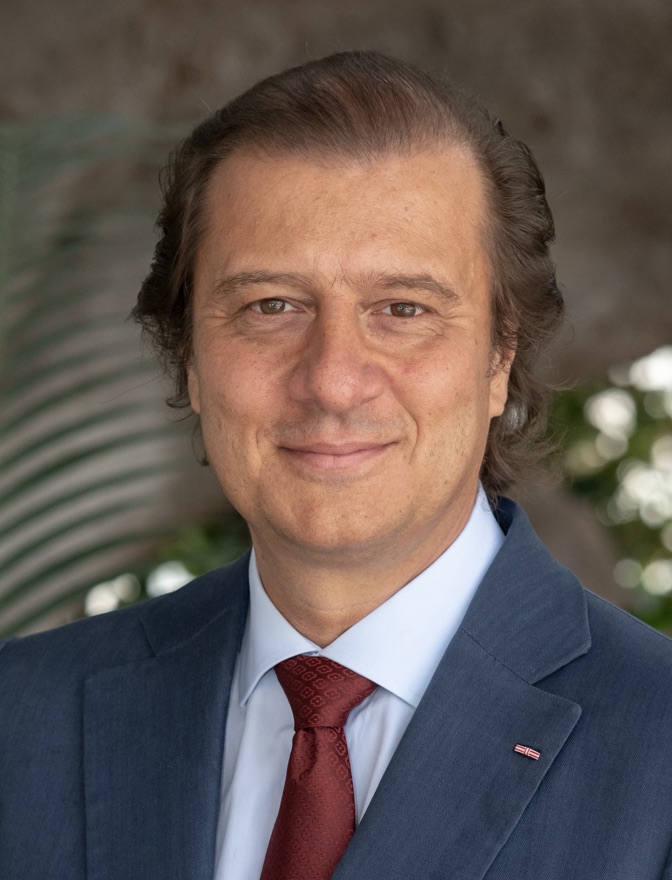Lifestyle Maintenance
How Do Your Spending Habits Fit In With The Rest Of The High-Net-Worth World?


AGAINST a backdrop of a cost-of-living crisis, soaring energy costs, rampant inflation and geopolitical tensions, the top priorities among affluent individuals and families across the globe are a contrast between financial stability and personal resilience. Wealth is now as much about ensuring the health and security of a family, both physical and mental, as it is about maintaining a certain lifestyle. Hedging against global turbulence has been a key theme in recent years, with the Covid-19 pandemic causing a significant shift in mindset towards preservation across nearly all demographic groups. However, as the final pandemic restrictions lifted and freedom returned, we have seen that the world is on the move again and those with disposable income are enjoying it.
Each year the Julius Baer Lifestyle Index analyzes the cost of a basket of goods and services representative of “living well” in 25 cities around the world. This provides an overview of the relative cost of maintaining a high-net-worth lifestyle in various major urban centers. The addition of the Lifestyle Survey supports the Index findings with quantitative analysis of the personal habits and sentiments of high-net-worth individuals (HNWIs). Together, they provide insight into the lifestyles, habits and priorities of HNWIs around the globe.
This year, the vast majority of cities in Europe, the Middle East and Africa (EMEA) fell in the global rankings. London (fourth) and Monaco (sixth) have been joined in the global Top Ten by a rapidly rising Dubai (seventh), which is now more expensive than Paris and Zurich. Euro-centered economies felt the impact of the currency’s weakness against the dollar in 2022, contributing to the relative decline of Paris, Milan and Barcelona. However, these mid-sized cities in wealthier European countries continue to offer stable political environments with good infrastructure and services, from social to health and leisure, so their enduring appeal to the affluent demographic should not be underestimated.
According to the Index, the greatest price increases are in high-demand, premium consumables such as wine and whisky, as well as luxury cars and hospitality services. Hotel suites, business class flights and fine dining all experienced significant price increases as the demand for travel and entertainment has surged. Overall, the cost of services grew more than the cost of goods, but across the board, price changes of both goods and services in the Index show the impact of increased energy, raw material and staffing costs. Coupled with inflation, currency fluctuations and ongoing supply chain disruption, these conditions mean that every industry, business and consumer is feeling the effects on their purchasing power.
Price rises in premium goods and services underpin the case that wealthy consumers need to achieve a high-single-digit investment return in US dollar terms to preserve their wealth. These findings also support the insight that rock solid currencies and, in particular, assets denominated in such currencies (for example, the US dollar or Swiss franc), can help weather these storms and secure a healthier, wealthier future. Tracking the cost of premium goods and services is just one way of evaluating the lifestyle of the high-net-worth demographic. But how have their habits and outlook changed in the past months and what do they expect in the future? This year, we see that wealth continues to take on a broader meaning for HNWIs: it is no longer only about financial health, freedom and security but also physical health, freedom and security.
Health: our most valuable asset
Having come through the pandemic, HNWIs participating in the Julius Baer Survey listed maintaining their and their families’ health as one of the top priorities. Improving nutrition, taking time to recuperate and relax and raising fitness levels have all been highlighted. More than half of HNWIs in all regions have used gym memberships in the past year and in Europe one in four exercised almost once a day. Personal gym equipment is also high on the list. It isn’t only physical preparedness, though, that has become a top expenditure. HNWIs in all regions are spending more on health insurance to secure the best healthcare should they need it in the future. This “future-proofing” of body and mind also extends to building better relationships with family and friends and creating a secure and efficient home environment in which to live and work.
Let the good times roll
Taking care of family and health does not mean that HNWIs just want to stay at home. After several years of being constrained in what they can do and where they can go, they (like everyone else) are ready to enjoy themselves. This means increased demand for entertainment, hospitality and social experiences. They also want to treat themselves to luxury goods and premium services, as well as racking up air miles in a pronounced return to the skies. We see that spending on hospitality (gourmet meals and five-star hotels) has risen in all the regions. This year’s survey also reveals a focus on high-end consumption. In terms of products, fashion and accessories, including designer clothing, watches, handbags and shoes, are top of HNWIs’ lists. Spending has increased at middling levels in Europe. The desire to be in fashion while enjoying being out and about is clearly one in which HNWIs are indulging.
A world on the move
With travel restrictions no longer an issue, HNWIs around the world are on the move again. Travel for both leisure and work is on the up and people are increasingly spending on flights. The frequency of leisure travel has also increased significantly and demand looks set to remain strong. Additionally, airlines underestimated the resurgence in demand and many have drastically increased their fares to try to compensate. As a result, HNWIs have had to spend more to fulfil their wanderlust. But just how are HNWIs travelling? Commercial flights are used more frequently by a significant portion. Interestingly, private aircraft and private charter service use is decreasing across all regions except Latin America. Conversely, use of private road transportation is markedly on the up. Despite a strong push towards more environmentally-friendly options, such as public transportation or bicycles, HNWIs still prefer personal vehicles, perhaps for the privacy and flexibility they offer.
Sustainable growth
With strong evidence to suggest that human encroachment and impact on nature are the causes of a growing number of life-threatening hazards, people are prioritizing sustainability more highly than before. But, there is a noticeable “say-do” gap between intention and action. While sustainability is seen as an important topic, it does not appear to play a big part in most HNWIs’ daily purchasing decisions. Enjoyment, distraction, product innovation and design are still bigger influencers here. However, environmental, social and governance (ESG) considerations do play an increasingly important role in HNWI investment decisions, with the vast majority of all investors seeing the importance of sustainable investment decisions.
Financial health
In all regions, at least a quarter of HNWIs stated that they invested more money during 2022 than in the previous year. This tallies with the overarching investment intention of increasing wealth that is most prominent in North America and Europe. Considering where HNWIs invest, North Americans and Europeans have tended to be more conservative and have not changed the diversity and focus of their assets in the past year, choosing to prioritize equities and real estate, potentially to mitigate the effects of future inflation. A significant proportion have also spent more in the past months. This indicates two things: that even the wealthy are not cushioned from rising living costs and that they are deploying recently accrued capital. More than ever, the results underline the importance of a robust wealth management strategy that can support the needs of both the individual and their families for generations to come. As complexity grows across cities, continents and financial jurisdictions, the value of a trusted, experienced partner is incalculable. Ensuring the health of personal and financial matters today will provide greater resilience to any unpredictable events to come tomorrow.
A contradictory outlook
Overall, the broad picture is one of cautious optimism. People are mostly spending more, travelling more and taking care of themselves, but they are also preparing and investing for the future and considering the impact of their decisions. Family, health and resilience are the top priorities for good reason. As the world grapples with the legacy of the virus, an unpredictable financial outlook and geopolitical tensions, it is more important than ever to have a plan for both family and finances. We should enjoy today, but must also be prepared for whatever tomorrow might bring.
The views and opinions expressed herein are the views and opinions of the author and do not necessarily reflect those of The Monegasque™.
Disclosure: The Monegasque™ enhances the editing process with the help of carefully selected AI tools. These tools provide valuable support without taking over the editing process completely, ensuring that the final product is the result of human creativity and expertise augmented by the benefits of enhanced technology. This article is protected under the copyright of The Monegasque™. Unauthorized reprinting, republishing, or rewriting of this content is strictly prohibited without explicit permission from The Monegasque™. Quotations from this material are permissible provided that a direct link to the full article on The Monegasque™ is included.